#and some thirty anders sketches
Photo
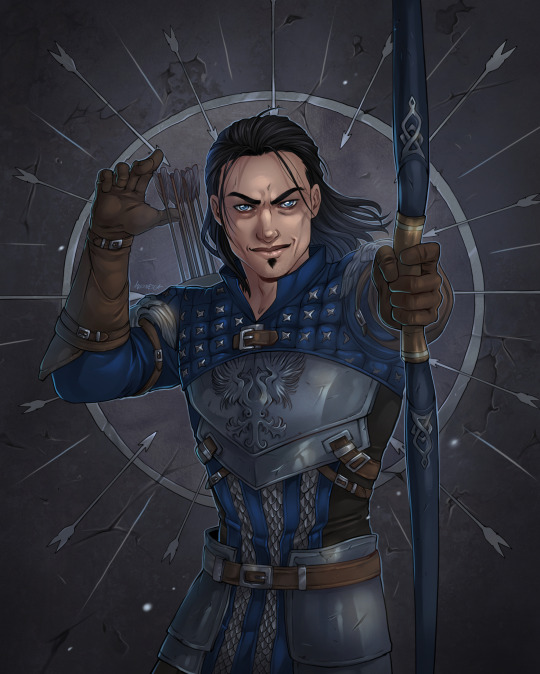

Nathaniel Howe
I’m gonna draw also male and female Hawke matching portraits
#Dragon Age fanart#nathaniel howe#Nathaniel dragon age#dragon age#da2#dragon age awakening#grey warden#and some thirty anders sketches#but not only him#fenris maybe too stay tuned
1K notes
·
View notes
Photo
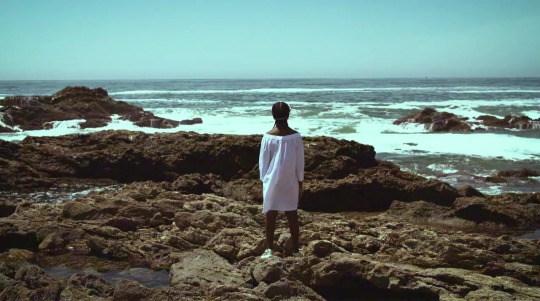
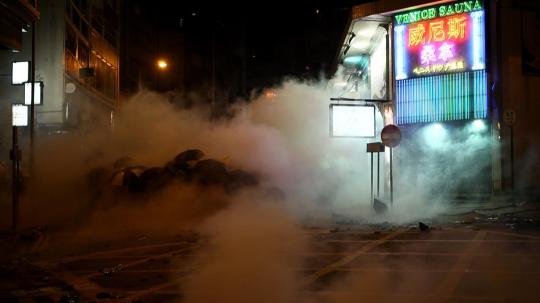
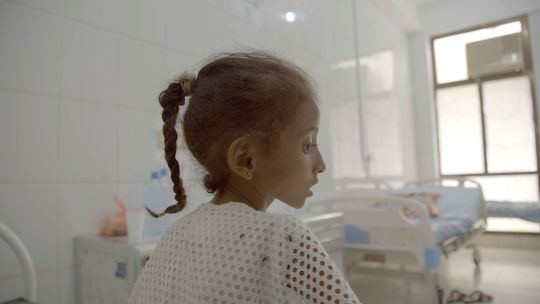

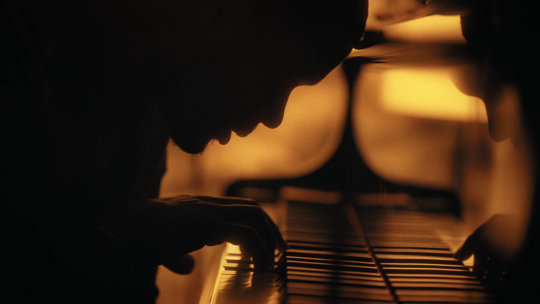
Best Documentary Short Film Nominees for the 93rd Academy Awards (2021, listed in order of appearance in the shorts package)
NOTE: For viewers in the United States (continental U.S., Alaska, and Hawai’i) who would like to watch the Oscar-nominated short film packages, click here. For virtual cinemas, you can purchase the packages individually or all three at once. You can find info about reopened theaters that are playing the packages in that link. Because moviegoing carries risks at this time, please remember to follow health and safety guidelines as outlined by your local, regional, and national health guidelines.
A Love Song for Latasha (2019)
On March 16, 1991, Latasha Harlins, a 15-year-old African-American girl, was murdered by Soon Ja Du at Du’s convenience store in Los Angeles. The murder, which occurred almost two weeks after Rodney King’s beating at the hands of the Los Angeles Police Department (LAPD), contributed to the start of the 1992 LA riots one year later. Directed by Sophia Nahli Allison, A Love Song for Latasha is an avant grade film that intercuts statements by Latasha’s friends and family about the young girl they cared deeply for. Alongside reenacted scenes of childhood, of black girls frolicking on the Californian coastline and the streets of Los Angeles, the film serves as an intimate eulogy for Latasha – one delivered as memories about her become less immediate.
Whatever justified rage the Los Angeles rioters might have felt in 1992 is not the dominant force in Allison’s film. A Love Song for Latasha is foremost a cinematic lament rather than a political polemic. With the reenacted scenes edited and appearing as if it resembling a home movie, this piece appears like a visualization of the memories that the interviewees are recalling. When Latasha was murdered, she ceased to be just a daughter or a friend. A Love Song for Latasha, thirty years on, seeks to reclaim those distinctions for those who knew her best – something, given the significance of Latasha’s murder in history, that may never happen.
My rating: 6.5/10
Do Not Split (2020, Norway)
From Norwegian documentarian-journalist Anders Hammer comes Do Not Split, a street-level glimpse into the protests against the 2019 Extradition Law Amendment Bill (ELAB) that inspired the passage of the 2020 Hong Kong national security law. The events depicted in Hammer’s film include the Hong Kong police’s sieges of the Chinese University of Hong Kong (CUHK) and Hong Kong Polytechnic University, in addition to small-scale clashes between protesters and police, as well as mainland Chinese instigating confrontations. Hammer’s footage is harrowing material, a collection of violent imagery with few moments of individual revelation or introspection outside of the presence of Michigan-born activist Joey Siu. Do Not Split decides not to attempt a dialectic of why the Chinese Communist Party (CCP) and the Hong Kong Legislative Council (LegCo) are pursuing these changes and are brutalizing the protesters, depriving this film of the context that less knowledgeable viewers might need. For those who have been keeping at least superficially aware of events in Hong Kong, there is never any question on which side Hammer is on – despite Hammer’s journalistic background, this is not a piece of objective journalism.
Yet this is not agitprop due to the politics left mostly unexplained, and none of Do Not Split’s flaws take away from the rawness of the protesters’ desperation and the cynicism of the police and government officials enacting the crackdown. Despite the repetitive nature of the footage by the time it reaches the final stages of its thirty-five-minute runtime, Do Not Split contains excellent, crisp hand-held footage that makes immediate sense of the space and time of the depicted violence.
My rating: 8/10
Hunger Ward (2020)
For Pluto TV (some cord-cutting television service I was not familiar with until I started writing this) and MTV Films and directed by Skye Fitzgerald (2018 Oscar-nominated short film Lifeboat), Hunger Ward follows doctor Aida Al-sadeeq and nurse Mekkia Mahdi as they treat malnourished children in the midst of ongoing the Yemeni famine. The famine, directly related to the civil war that began in late 2014, has seen almost a hundred thousand children die in what UNICEF describes as, “the largest humanitarian crisis in the world.” Fitzgerald film works best when focusing on Al-sadeeq and Mahdi, as they describe the heartbreak conditions of the hunger ward and their experiences since the famine began. However, much of Hunger Ward’s footage is too in-your-face with footage of the mothers’ grieving and the last moments of several children. It appears almost as if gawking at the desperation and death that occurs every day in this hospital.
This is not to say that there is no revelation in the image of a child with their eyes glazed in lifelessness or the unearthly wails of a mother overtaken by grief. Fitzgerald edits and shoots their film in a way that makes this process – a child in their last moments of care, a declaration of death, a shot of the child’s corpse, a cut to the mother inside or arriving to the deathbed, and the echoing despair – occur tediously in their movie. Hunger Ward never breaks from this tedious formula. The film is redeemed only by withholding its slings and arrows until some text prior to the end credits, correctly assigning responsibility with Western nations that have enabled and abetted the violence in Yemen.
My rating: 6/10
Colette (2020)
Colette Marin-Catherine is in her twilight years and, upon first appearances, one might not predict the incredible life story that she has to tell. She was a French Resistance member, and French Resistance narratives tend to be sidelined in favor of those depicting Allied soldiers liberating France instead. But Anthony Giacchino’s (the brother of composer Michael Giacchino) film, distributed by British newspaper The Guardian and made for an extra feature of the virtual reality (VR) video game Medal of Honor: Above and Beyond, decides to linger on the memories of Colette’s murdered brother, who died at Mittelbau-Dora concentration camp in Germany, instead. At the urging and with the assistance of the young historian Lucie Fouble, who is interested in telling Colette’s story (although technically this is not Colette’s story), Colette travels to Germany to visit the site of Mittelbau-Dora so that Colette can… spill out her feelings?
It is self-evident that Colette does not see the academic or personal value of such a trip, but the irascible subject of this short film will nevertheless humor Fouble – her intentions genuine, her approach questionable. Colette, who cannot forget the loss of brother but has not been dwelling on his death, is emotionally vulnerable throughout the trip to Germany, and the audience learns little about Colette, German atrocities, or her brother. Even in these moments, she remains a compelling figure on-screen, but this movie is a disservice to its eponymous subject – one who deserves more credit as a member of the French Resistance, as someone not defined by the worst thing that had ever happened to her.
My rating: 6/10
A Concerto Is a Conversation (2020)
Distributed by The New York Times and executive produced by Ava DuVernay, Ben Proudfoot and Kris Bower direct a deeply personal documentary short film to bookend this slate of five. A Concerto Is a Conversation contains a conversation between Kris Bowers (composer on 2018’s Green Book and 2021’s The United States vs. Billie Holiday) and his grandfather, Horace Bowers Sr., before the premiere of Bower’s concerto at the Walt Disney Concert Hall in Los Angeles. What follows is a disjointed film with sketches of Jim Crow-era America from Horace’s past to the anxiety-laden self-questioning of Kris’ present. Kris, as a black man, is questioning his place in the classical music world – which has, justifiably in some ways, been seen as staid and white. If A Concerto Is Not a Conversation can bridge the differences between Horace and Kris’ stories, it barely does so thank to the scattershot editing.
Yet Kris and Horace’s conversation is wholesome, admiring, loving. This is Kris’ way to show his appreciation for his grandfather and the struggles that he endured for most of his life. The out-of-focus background makes A Concerto Is Not a Conversation seem almost like a dream, a meeting that almost should not be happening. And in honoring Kris’ profession and the piece that is set to debut, the film is divided into noticeable thirds – just like a concerto’s three movements. A Concerto Is Not a Conversation might not make for the most cohesive viewing, but it is a celebration of a profound bond, tied together by forces that defy even the most eloquent words: music and love.
My rating: 6.5/10
^ All ratings based on my personal imdb rating. Half-points are always rounded down. My interpretation of that ratings system can be found in the “Ratings system” page on my blog (as of July 1, 2020, tumblr is not permitting certain posts with links to appear on tag pages, so I cannot provide the URL).
For more of my reviews tagged “My Movie Odyssey”, check out the tag of the same name on my blog.
From previous years: 88th Academy Awards (2016), 89th (2017), 90th (2018), 91st (2019) and 92nd (2020).
#A Love Song for Latasha#Do Not Split#Hunger Ward#Colette#A Concerto Is a Conversation#Sophia Nahli Allison#Anders Hammer#Skye Fitzgerald#Michael Shueuerman#Anthony Giacchino#Ben Proudfoot#Kris Bowers#Latasha Harlins#Hong Kong#Yemen#Ava DuVernay#93rd Academy Awards#Oscars#31 Days of Oscar#My Movie Odyssey
15 notes
·
View notes